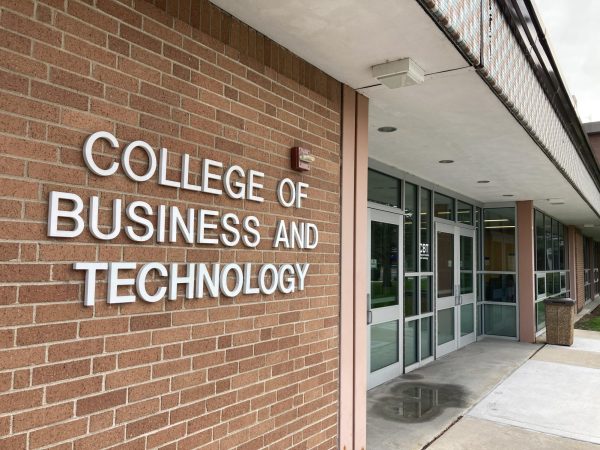Northeastern Illinois University’s 2020-2021 Finance & Administration Report Released
Northeastern Illinois University’s 2020-2021 Finance & Administration Report Released
Northeastern Illinois University (NEIU) released the “Finance & Administration Report 2020-2021,” full of updates to University Technology Services, University Police, University Budgets, Student Payment Services, Procurement Services/Purchasing, Internal Audit, Human Resources, Facilities Management and the Controller.
There were three departmental mergers. Student Payment Services now reports to the Office of Finance and Administration. NEIU Parking Office and Vending was integrated into University Police and Facilities Management added Property Control, Shipping and Receiving and Mail Services to its responsibilities.
During the last year, the University received a total of $23.3 million from the Higher Education Emergency Relief Fund. Of which, $4 million was allocated to update university HVAC systems, adding personal protective equipment, installing no-touch fixtures and updated cleaning protocols. Another $1 million was used for mandatory fee refunds and $7 million was “invested…in IT infrastructure and technology upgrades and provided workshops to assist faculty and staff with the transition to new digital platforms and processes.” Included in these investments were upgrades for video conferencing, digital data transfer, automation software and hybrid classrooms. Additional funds were allocated to Student Health Services, “related to COVID-19 testing and the implementation of a vaccine incentive program.”
University Technology Services (UTS) worked to supply 250 Chromebooks and 30 Hot Spots “for students with little or no access to personal computers,” as well as opening a “Mini Student Lab” in the Student Union. UTS also upgraded eight classrooms for hybrid classes whereby in-person and remote learning may commence simultaneously. They also worked to introduce an online queue for Student Health Services, eliminating the need for a physical line. Additionally, UTS acquired hundreds of VPNs and Zoom Education licenses for faculty and staff.
University Police (UP) faced a budget reduction of $650,000. Despite this they were able to continue operating on campus 24/7 during the pandemic closures. UP also established new ways of reporting to “provide easy access to online safety resources” and “updated the emergency alert system to allow text notifications and automatic alerts to all NEIU email accounts.”
University Budgets (UB) “developed budgets for $41.9 million in federal and state COVID relief funds across five grants including distribution of $15.9 million in direct aid to students.” UB also reorganized the budget staff and transitioned to an entirely paperless management system for documents. Additionally, UB works to create strategies dealing with the expected budget shortfall as a result of “a potential 10% reduction in state appropriations and 20% decline in enrollment.” UB also cut $3.5 million in “planned, unbudgeted instruction” and supplemented a $500,000 University Technology Services budget shortfall by creating “a $3.7 million fund to support stabilization of critical infrastructure.”
Student Payment Services (SPS) “distributed over $7.6 million…of CARES and HEERF funding to students,” and implemented the Illinois’ AIM HIGH program, conveying almost $1.7 million to “many undocuments student accounts, helping them pay tuition and mandatory fees.” SPS also claims it “posted mandatory fee reduction transactions to student accounts due to course delivery adjustments.”
Payment Services worked to update university credit card procedures and expedite approvals by implementing “electronic requisitions, eliminating paper requisitions sent by end-user departments via interoffice mail, allowing for quicker approvals.”
Internal Audit (IA) worked on developing “approval of the Annual Two-Year Risk-Based Audit Plan with the coordination and input of approximately 40-45 managers and executive management,” which was approved. IA also audited “identified high-risk areas” and worked to ensure adherence to their recommendations.
Human Resources (HR) completed its audit, which occurs every three years, and finished “compliance training for I9 verification with tools from US Citizenship and Immigration Services.” HR also worked to assist, through information and education, university staff with “over 175 fraudulent unemployment claims.”
Facilities Management (FM), like University Police, maintained their presence on campus throughout the pandemic closures and “met or exceeded all industry standards for infectious aerosols.” They also installed new HVAC filters, hand sanitizing stations, social distancing markers and PPE. FM also stated that “[e]ngineers continued to work 24/7 to prepare for the safe return of students, faculty and staff” this fall.
The Controller worked to digitize much of the university systems, stating that they “increased [the] number of direct deposit accounts to 85%, reducing fraud and expediting payments to students, faculty and staff.”
The Independent is working to acquire information to direct readers to an online version of the “Finance & Administration Report 2020-2021” and will post directions to access it when acquired.
Your donation will support the student journalists of Northeastern Illinois University's The Independent, either in writers' payment, additional supplies and other items of note. Your contribution will allow us to purchase additional equipment for writers/photographers/illustrators and cover our annual website hosting costs.







